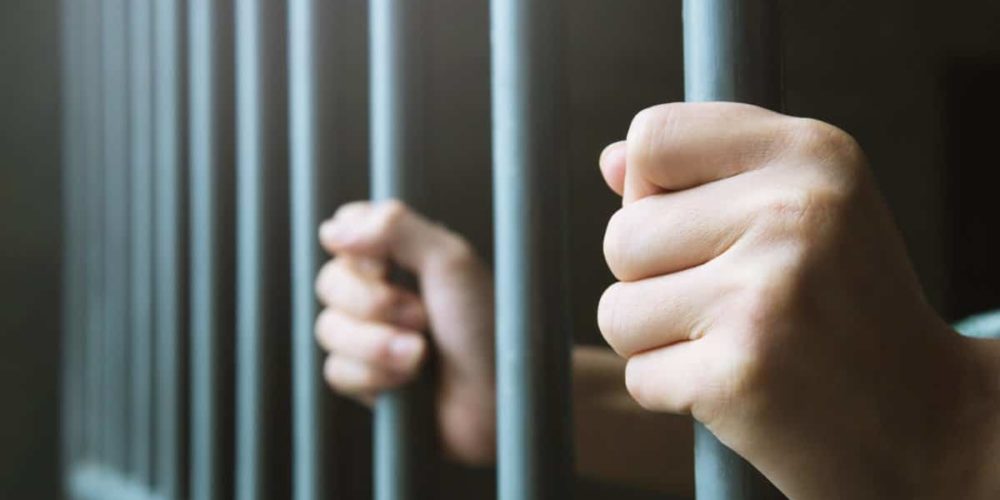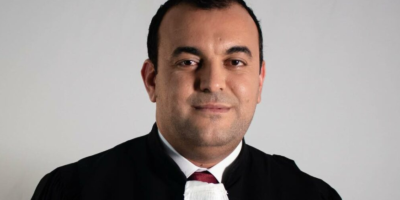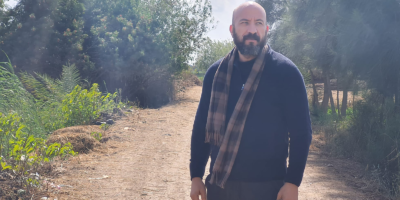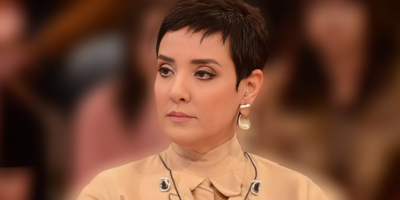Press release:
Translation and editing by CFJ
Geneva, 29 September 2020
A group of United Nations human rights experts have expressed their deep concern about the arrest of many activists and human rights defenders in Egypt, preventing them from communicating with the outside world, and renewing their imprisonment “in absentia”, since the precautionary measures for the coronavirus pandemic began inside Egyptian prisons, as well as the risk of contracting the virus.
Systematic violations of human rights:
In an urgent appeal note sent on July 29, 2020, and which has not yet been answered by the Egyptian government, the experts confirmed that the Egyptian Prisons Authority has not organized alternative measures for prisoners to contact their families and their lawyers, although Article 38 of the Prisons Organization Law stipulates the right of inmates to communicate with the outside world by phone, but this does not appear to have been implemented.
The experts added that on March 15, 2020, the Egyptian Ministry of Justice suspended all trial sessions and detention renewal sessions, initially for a period of two weeks, but then repeatedly, as a measure to combat the coronavirus. Since June 27, 2020, courts have resumed operation at all levels, but the judicial process continues to take place behind closed doors, without the presence of the defendants or their lawyers.
The experts expressed their grave concern over these measures, considering them systematic violations of the most basic human rights and fundamental freedoms of individuals by the Egyptian authorities.
The experts also considered that the continued detention of human rights defenders and other peaceful actors during the pandemic is extremely worrying, especially since many of them suffer from medical conditions that put them at risk of death in detention, and may violate the right to life and health, which are respectively protected by the International Covenant on Civil and Political rights and the International Covenant on Economic, Social and Cultural Rights which Egypt ratified on January 14, 1982.
In their memorandum, the experts presented cases of those detained human rights defenders, including:
1- Ms. Sanaa Seif:
Ms. Sanaa Seif is a woman human rights defender and film editor who raises awareness about alleged human rights violations by the Egyptian Government.
She was arrested on 23 June 2020, while she was on her way to the Public Prosecution, accompanied by Dr. Laila Soueif and a lawyer, to request a meeting with the Public Prosecutor to submit complaints regarding the attack at Tora Prison by unidentified women, where dr. Soueif’s son is imprisoned, after they peacefully sat in front of Tora Prison, protesting against preventing communication with Dr. Soueif’s son, who was also arrested, due to the precautionary measures taken by the Egyptian authorities to deal with the coronavirus pandemic.
On the same day, Ms. Seif was interrogated at the State Security Prosecution, and the arrest record claimed that Ms. Seif was arrested in a different part of the city, which was not the Public Prosecutor’s Office. She was charged with “committing terrorist crimes”, “misuse of social media platforms” and “publishing false news” in case no. 659/2020 and she remains in pre-trial detention.
2- Ms. Esraa Abdel Fattah:
Ms. Esraa Abdel Fattah is a woman human rights defender and journalist. She worked as a coordinator at the Egyptian Democratic Academy (EDA), a youth organisation promoting the values of democracy, human rights and political participation. She has increasingly called for the release of all prisoners detained during the September 2019 protests.
On 15 October 2019, two days after her arrest, Ms. Abdel Fattah was transferred from the police station where she was being held in Cairo, to Al-Qanater women’s prison, where she continued the hunger strike that she had begun on 12 October 2019, in protest against her arrest, torture and ill-treatment.
On 22 November 2019, she suspended her hunger strike as a result of her severely deteriorating health condition, and recommenced it on 9 December 2019 when her pre-trial detention was again renewed for a further 15 days by the Supreme Public Prosecution. Since March, Ms. Abdel Fattah has only been permitted to send three letters, and she has reportedly not received all letters sent by her family.
3- Mr. Patrick Zaki:
Mr. Patrick Zaki is a gender and human rights researcher at the Egyptian Initiative for Personal Rights (EIPR). Mr. Zaki has been involved in several national campaigns against the violations of civil and political rights. He advocates for the rights of detainees, women’s rights and the rights of vulnerable groups, including Christian minorities in the country.
Since 8 February 2020, the day following Mr. Patrick Zaki’s arrest, his pre-trial detention has been renewed every 15 days. Mr. Patrick Zaki suffers from asthma, and he is more vulnerable to infection with the COVID-19 virus.
Since 5 May 2020, his detention has been renewed in absentia. His lawyer has also not been permitted to attend hearing sessions due to COVID-19 restrictions.
The Egyptian Initiative for Personal Rights (EIPR) has made a request to call Mr. Zaki. The request was approved by the Public Prosecution but at the time of writing the Tora prison administration has not responded to the request.
4- Mr. Ibrahim Ezz El-Din
Mr. Ibrahim Ezz El-Din is a human rights defender and urban researcher for the Egyptian Commission for Rights and Freedoms (ECRF).
On 12 June 2019, Mr. Ibrahim Ezz El-Din was arrested by police in plain clothes in the Mokattam region of Cairo, the Mokattam police denied having detained him.
Mr. Ezz El-Din was then forcibly disappeared for 167 days. On 28 November 2019, he appeared before the State Public Prosecution in Cairo. He was tortured during his detention to extract information about ECRF and his relationship with the organisation.
Mr. Ezz El-Din suffers from a respiratory condition that puts him at significant risk if he contracts the COVID-19 virus. He also suffers from significant health problems that have allegedly resulted from the torture and poor prison conditions that he has faced since his detention.
Since 4 December 2019, his pre-trial detention has been renewed every 15 to 45 days by the Supreme Public Prosecution, and on 15 March 2020, an appeal by Mr. Ezz El-Din of the latest decision to renew his pre-trial detention was denied by the Cairo Criminal Court.
5- Mr. Mohamed El-Baqer:
Mr. Mohamed El-Baqer is a human rights defender and lawyer and the director of the Adalah Centre for Rights and Freedoms, he was arrested on 29 September 2019 after attending the interrogation of one of his clients, since then, his pre-trial detention has been renewed by the Supreme Public Prosecution.
On 18 February 2020, the Tora Assize Court ordered the release of Mr. El-Baqer, however this decision was overturned on 20 February after the prosecutor appealed the decision., and since 5 May 2020, the Criminal Court in Cairo has renewed his pre-trial detention in absentia.
6,7- Ms. Solafa Magdy and Mr. Hossam El-Sayad:
Ms. Solafa Magdy is a woman human rights defender and a freelance journalist and Mr. Hossam El-Sayad is a journalist and human rights defender, and is married to Ms. Solafa Magdy. He worked with Ms. Magdy in advocating for the release of imprisoned human rights defenders and other prisoners of conscience.
On 12 April 2020, prison authorities at Al-Qanater prison, allowed prisoners to receive packages of clothes, food, personal hygiene products, letters and hot meals addressed to prisoners for the first time since March 2020. However, Ms. Solafa Magdy, was initially not permitted to receive packages, for reasons that have not been made clear. On 29 April 2020, the prison authorities allowed the family to send a package to Ms. Magdy, however the woman human rights defender has allegedly not been permitted to send correspondence in return.
Mr. Hossam el-Sayed, however, has been able to receive packages from family members since 12 April 2020, but is also not permitted to send letters in return. Neither they nor their lawyers have been able to attend pre-trial detention renewal hearings.
8- Mr. Ibrahim Metwally Hegazy:
Mr. Ibrahim Metwally Hegazy is a lawyer and a human rights defender, working as a Coordinator for the Association of the Families of the Disappeared in Egypt, which he founded following the disappearance of his son in 2013.
Mr. Ibrahim Metwally Hegazy continues to be detained in pre-trial detention since his arrest on 10 September 2017, despite this exceeding the two-year limit on pre-trial detention. He suffers from serious neurological conditions; however he has not been permitted transfer from the crowded conditions in Tora prison complex where he is being held.
Mr. Ibrahim Metwally’s health has deteriorated significantly since his arrest in September 2017, including as a result of the torture he reportedly experienced. He suffers from significant arthritis and nerve dysfunction, causing him tremors. Since May 2020, Mr. Metwally Hegazy has not been permitted to attend pre-trial detention renewal hearings.
9- Mr. Ramy Kamel:
Mr. Ramy Kamel is a human rights defender, head of the Maspero Youth Foundation, and he advocates for the rights of the Coptic Christians in Egypt and for a community-based approach to urban development in Egypt.
Mr. Kamel ‘s arrest and torture, reportedly in connection to his human right work, to prevent his participation at the 12th session of the Forum on Minority Issues, which took place in Geneva from 28 to 29 November 2019.
Mr. Ramy Kamel has been in pre-trial detention since his arrest on 23 November 2019. His detention has been renewed every 15 to 45 days since then.
Mr. Kamel suffers from an acute form of asthma and high blood pressure, which put him in a COVID-19 at-risk category of detainees.
Mr. Kamel’s family and lawyers have not been able to contact him and have received no update on his situation since 3 March 2020.
On 18 March 2020, Mr. Kamel’s pre-trial detention was renewed without the presence of the human rights defender or his lawyers. His lawyer has challenged the decision to renew his detention, arguing that it contravenes the right to a legal defence in Egyptian and international law. Since then, his detentions have been repeatedly extended or hearings have been postponed. His lawyer’s requests to view the court records of recent renewal hearings have reportedly been denied for unknown reasons.
On 8 June 2020, his lawyers attempted to send Mr. Kamel medication for his various medical conditions. They have not had any confirmation as to whether the medication has been received by Mr. Kamel.
10,11- Ms. Eman Al-Helw and Mr. Hossam Ahmad:
Ms. Eman Al-Helw is a woman human rights defender who works on issues of equality and anti-discrimination, including in the film industry in Egypt. Mr. Hossam Ahmad is a transgender human rights defender who began his human rights work from his place of detention, highlighting the unequal treatment of transgender individuals inside and outside of prison.
Mr. Ahmad was arrested alongside Ms Eman Al-Helw on 28 February 2019 and they face the same charges, and they continue to be held in unclean cells in the basement of Abdeen police station in Cairo, with no access to outdoor spaces or sunlight. They have not yet been accepted by any prison facility. Also, they have been constantly exposed to harassment as well as physical and psychological abuses. Further, prison guards call Mr. Hossam Ahmad by his birth name, rather than the name that corresponds with his gender. He has allegedly been denied hormone therapy since his arrest despite of a medical certificate describing his condition, and which medically qualifies him for gender-affirming treatment.
Since 4 May 2020, Ms Eman Al-Helw and Hossam Ahmad’s pre-trial detentions have been renewed in absentia.
12- Mr. Ramy Shaath:
Mr. Ramy Shaath is the co-founder of a number of political parties in Egypt as well as the Boycott, Divestment and Sanctions (BDS) Movement in Egypt.
From 25 November 2019 until 18 February 2020, Mr. Ramy Shaath’s pre-trial detention renewal hearings required him to sit behind soundproof glass, preventing him from speaking with his lawyer during court session, Since 18 February 2020, Mr. Shaath has not seen his lawyers.
On 17 April 2020, Mr. Shaath was added to a list of “terrorist individuals and entities” in Egypt for a period of five years, and accused in a new case, the charges of which have not yet been disclosed. The lawyers and family of Mr. Shaath were not informed of the hearing and reportedly learned of the developments through the press. His lawyers have appealed the decisions.
On 12 May 2020, 11 months since his they last talked, and two months since they last made any form of contact, a family member of Mr. Shaath was permitted to call him for a 45-minute supervised conversation.
At the end of their memorandum, the experts called on the Egyptian government to provide details of the measures taken to ensure that all prisoners are allowed regular contact with their families and lawyers, in accordance with Egyptian and international law.
The experts also demanded a statement of the measures taken to prevent the spread of the coronavirus in prisons, as well as details of the measures taken to protect and treat people who are most at risk, including those suffering from underlying health conditions.





